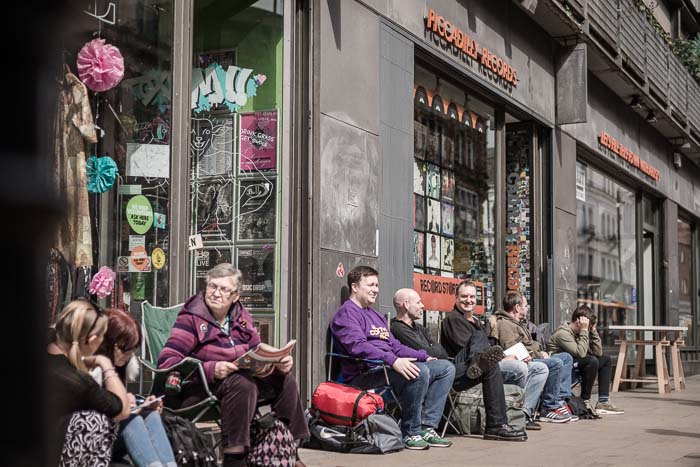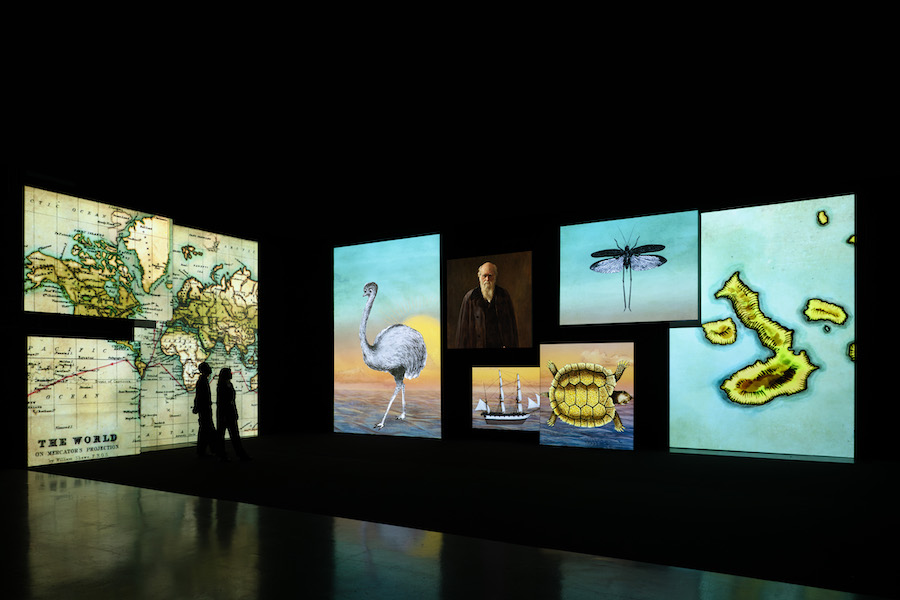The Manchester scientist who changed the way the world thought
- Written by Ed Glinert
- Last updated 1 year ago
- Cornerstone, Culture, History
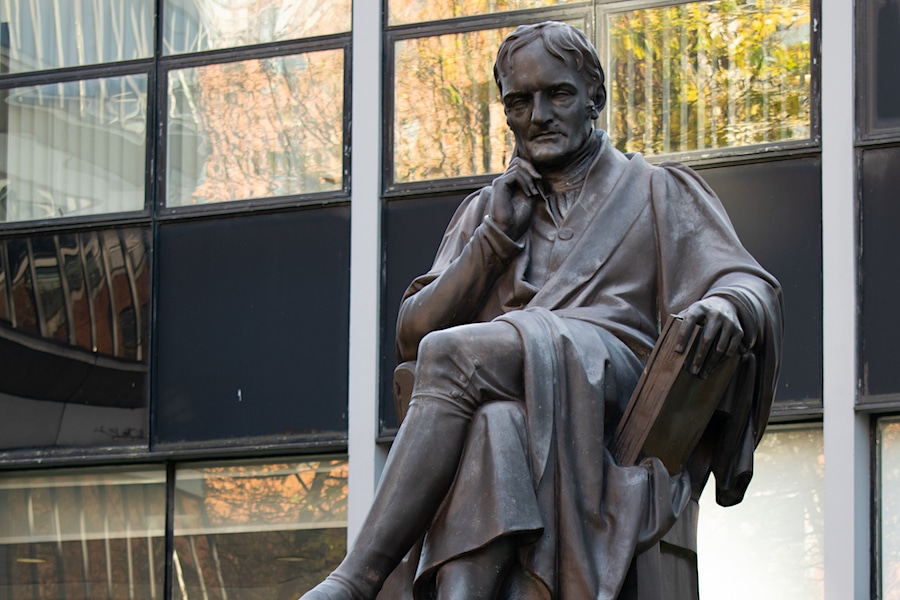
When John Dalton discovered the atom and presented a paper to the Manchester Literary and Philosophical Society at 36 George Street on 21st October 1803, it not only contained one of the greatest statements of modern science, it became the first significant event in Manchester history to make the rest of the world take notice of this growing town.
Few would have initially realised the importance of what was going to follow this statement:
“An enquiry into the relative weights of the ultimate particles of gaseous and other bodies is a subject, as far as I know, entirely new; I have lately been prosecuting this enquiry with considerable success”.
In his paper Dalton proposed that:
• All matter is composed of atoms
• Atoms cannot be made or destroyed
• All atoms of the same element are identical
• Different elements have different types of atoms
• Chemical reactions occur when atoms are rearranged
• Compounds are formed from atoms of the constituent elements.
• Atoms of different elements could be distinguished by differences in their weights.
Like many similar theories it was not entirely correct. A century later we discovered that atoms can be made or destroyed; that all atoms of the same element are not identical. But it didn’t really matter at the time. Dalton had changed world thinking.
There was one major flaw in Dalton’s claims: what was smaller than the atom? He couldn’t answer this. Ironically it was his obituarist, R. A. Smith, in a Lit and Phil Society paper in 1856 – twelve years after Dalton died – who first suggested that atoms might themselves be made of smaller particles.
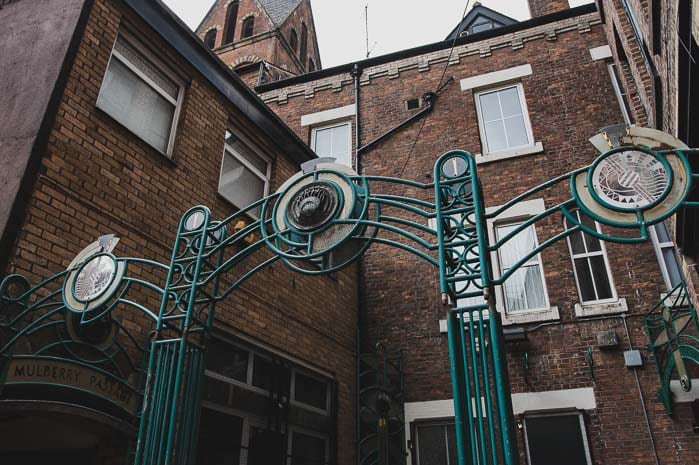
Sadly, the George Street building was destroyed during the Second World War blitz, an event which prompted the great science writer Isaac Asimov to note that “with John Dalton’s records, carefully preserved for a century, destroyed during the World War II, it is not only the living who are killed in war”.
One effect of Dalton’s findings is that it finally put paid to the ancient, alchemical claim that matter was made up of only four elements – air, water, earth and fire – which is why sculptures of them have been erected at the end of Dalton Entry, off John Dalton Street.
This location has been carefully chosen. To the side is the Catholic Hidden Gem church – it was the Roman Catholic church of old that had decried new advances in science during the late Middle Ages. They’ve since changed their minds.
To find out more about the history of the city through its sites, signs, symbols, statues, settings, join tour guide and author Ed Glinert on one of his New Manchester Walks. More information on the website.
- This article was last updated 1 year ago.
- It was first published on 24 May 2019 and is subject to be updated from time to time. Please refresh or return to see the latest version.
Did we miss something? Let us know: press@ilovemanchester.com
Want to be the first to receive all the latest news stories, what’s on and events from the heart of Manchester? Sign up here.
Manchester is a successful city, but many people suffer. I Love Manchester helps raise awareness and funds to help improve the lives and prospects of people across Greater Manchester – and we can’t do it without your help. So please support us with what you can so we can continue to spread the love. Thank you in advance!
An email you’ll love. Subscribe to our newsletter to get the latest news stories delivered direct to your inbox.
Got a story worth sharing?
What’s the story? We are all ears when it comes to positive news and inspiring stories. You can send story ideas to press@ilovemanchester.com
While we can’t guarantee to publish everything, we will always consider any enquiry or idea that promotes:
- Independent new openings
- Human interest
- Not-for-profit organisations
- Community Interest Companies (CiCs) and projects
- Charities and charitable initiatives
- Affordability and offers saving people over 20%
For anything else, don’t hesitate to get in touch with us about advertorials (from £350+VAT) and advertising opportunities: advertise@ilovemanchester.com
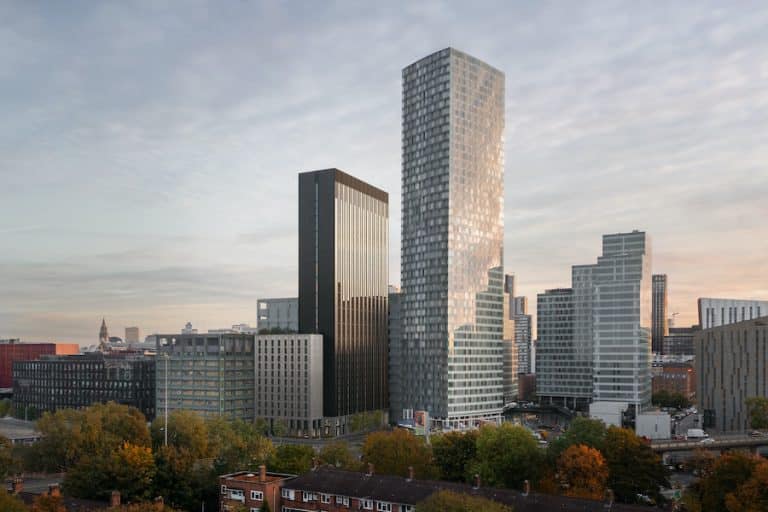

The Manc aerobics queen who trained the Corrie cast is helping raise charity cash
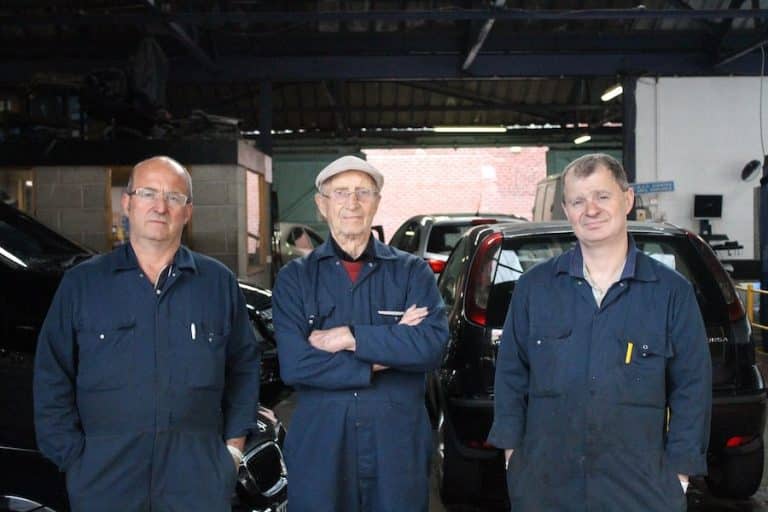
Ancoats to get even cooler as independent market set for MOT garage site

“Manchester is not Britain’s second city, it’s the first” – Jeremy Clarkson
